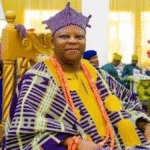Generational intelligence is about leading with context and care, argues LINUS OKORIE
In 2021, a TikTok video went viral. A Gen Z employee recorded herself crying because her boss told her, “You need to toughen up. You’re too soft for corporate life.” The comments section was divided. Some accused her of being fragile while others defended her emotional honesty. But the real issue had nothing to do with emotions. It had everything to do with a leadership blind spot; generational intelligence.
In today’s workplace, we have five generations present at different cadres. And if you are still expecting everyone to think, communicate, and respond like you, you are not leading. If you want to lead effectively in today’s workplace, you need more than empathy. You need the ability to understand, navigate, and lead people who grew up with wildly different assumptions about time, work, communication, and authority.
The problem is, most leaders are winging it. They’re frustrated by missed deadlines, awkward meetings, tone-deaf emails, and what feels like resistance or entitlement. But what they’re really seeing is culture clash. When you don’t know what triggers each generation, you interpret their actions through your own lens, and that’s when the whole thing falls apart.
In a consulting firm in Lagos, a Gen Z analyst submitted a deliverable over Slack during work hours. He didn’t include the usual formalities like “Hi” or “Best regards.” Just the file link and “let me know if this works.” His Boomer manager was livid. She read it as dismissive and disrespectful.
The thing here is that the Gen Z grew up sending short, direct messages. Meanwhile, his boss was trained to write long, expressive messages, where greetings and closings signaled professionalism. None of them was wrong. But without context, both felt slighted. This happens every day. Gen X might interpret lowercase, emoji-filled messages as careless. Gen Z might see formal messages on the company’s Slack or WhatsApp group as robotic and cold.
Small misunderstandings spiral into bigger issues because leaders fail to recognize the cultural wiring behind them. The trigger is the interpretation, not what was done. It’s. And if leaders don’t learn to decode these generational cues, they end up policing style instead of addressing substance. Therefore, generational intelligence means understanding that what offends you might not be personal, but cultural.
Generational intelligence starts with choosing curiosity over assumption. Ask questions without sarcasm or passive-aggression. Back in the 1990s, when Lou Gerstner took over a rigid, hierarchical IBM, he realized that its inability to adapt was about its culture. He created environments where employees could challenge assumptions, ask questions, and teach leadership what they actually needed. This is what saved the company.
Leaders today need the same posture. If a younger team member seems to “push back,” don’t assume defiance. Ask what they’re seeing that you might be missing. Instead of saying, “We’ve always done it this way,” you can ask “What would you do differently and why?” Instead of asking, “Why don’t young people stay?” try “What does a sustainable career path look like to you?” Instead of asking, “Why aren’t young people committed anymore?” ask, “What does commitment look like to this generation?” Instead of saying, “Back in my day, we didn’t expect a promotion after one year,” try, “What kind of growth are you hoping to see here?”
Better questions open doors. Lazy assumptions shut them. And if you feel out of touch? Admit it. Saying something like, “I’d love to understand how you approach this, because it’s different from how I was trained,” is not weakness. It’s leadership.
Now, let’s talk communication. You don’t need to start using stickers and memes just because you’re leading Gen Z. That’s pandering. You also don’t need to keep everything formal and top-down because you have Baby Boomers on your team. This is rigidity. Generational intelligence means adapting without losing your authenticity.
General Electric in the Jack Welch era was were trained to “speak in the language of the listener,” whether talking to factory workers, engineers, or shareholders. The same rule applies across generations. Understand your audience.
Gen Z often prefers quick, real-time feedback through chats or collaborative docs. Boomers may prefer more formal updates in person or via email. Millennials tend to like regular one-on-ones and collaborative dialogue. Gen X will likely appreciate you getting to the point and letting them work independently. What works is effective communication. Don’t use vague phrases like “circle back” or “we’ll revisit.” Say what you mean clearly.
Feedback is where leaders get stuck. Some still cling to annual reviews like a relic of the past. Others think praise on Slack is enough. Neither approach works for everyone. Boomers and some Gen Xers often value formal reviews. They see structured feedback as professional and fair. Gen Z, on the other hand, thrives on more frequent, informal check-ins. Millennials appreciate regular praise but want critical feedback to be actionable, not sugarcoated.
Don’t assume everyone wants feedback the way you like it because feedback styles are generationally coded. Ask each team member how they preferred to receive feedback. Document it, and lead accordingly. And don’t forget about upward feedback. Gen Z will freely tell you how you’re doing as a manager. Take it seriously, not personally.
In 1999, Procter & Gamble launched an experimental reverse mentoring program where senior leaders were paired with junior staff who were younger and more tech-savvy to learn how to navigate the rapidly changing digital world. At the end of the program, the senior executives improved digital literacy, and junior employees gained confidence and visibility. That model has been replicated globally, from PwC to General Motors.
In today’s workplace, reverse mentoring is a necessity. A Boomer’s strategic depth or a Gen Xer’s resilience can shape a younger employee’s path in meaningful ways. Gen Z has a lot to offer. They bring tech fluency, social awareness, and a different way of thinking that can help your business stay relevant. Letting them teach, not just learn, builds respect and mutual understanding.
As a leader, create opportunities for cross-generational mentoring both ways. Pair employees up for monthly learning sessions. Let younger staff teach emerging tools or trends. Let older staff share stories about how they handled crises, managed people, or scaled their careers.
Generational intelligence is about expanding your awareness and updating your approach. It’s not about pleasing everyone but leading with context and care. Your Gen Z team member didn’t grow up with voicemail. Your Gen X team member remembers working without internet. Your Millennial employee graduated into a recession. Your Boomer teammate watched their parents work 30 years for the same company. All of that shapes how they interpret your tone, your feedback, your policies. Therefore, if you want your multigenerational team to stay, grow, and lead with you, then stop leading by assumption. You don’t need to agree with every mindset. You do need to understand it.
Linus Okorie MFR is a leadership development expert spanning 30 years in the research, teaching and coaching of leadership in Africa and across the world. He is the CEO of the GOTNI Leadership Centre.


















Leave a comment